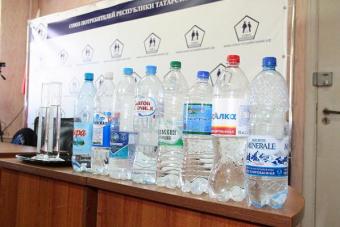Children's health and sports are interconnected! All mothers and fathers know this and sooner or later think about such questions: at what age to send a child to sports, what sports section to choose, where to start classes and will the baby pull physical activity?
You will find answers to these important questions in our article.
123RF/bakharev
Preparatory stage
The goal of each parent is not to harm the growing body with additional loads, but on the contrary, to develop physical data and improve the health of the child!
Therefore, before you decide on a sport and start collecting information about the sports sections of your city, you should undergo a medical examination. Consult a pediatrician, surgeon, ophthalmologist, otolaryngologist - if your baby has any contraindications to the chosen sport.
It should also be taken into account personal wishes of the future athlete. If your dream is to raise a football or figure skating star, and your child wants to do dancing exclusively, do not force him to go to the classes you have chosen. Through force, he will not achieve success, and forced lessons will be enough for him at school!
When to send a child to sports and what to choose?
To determine when to send your child to sports and which section, you need to understand sports standards.
Sports from birth to 2 years
Immediately after the birth of the crumbs, you can play sports with him. Ordinary gymnastics for babies is very useful, which includes massage, touching, exercises with the help of parental hands or a children's fitball. Some families learn dynamic gymnastics and infant swimming.

123RF/ Irina Schmidt
Sports at 2-3 years old
At this age, children and physical activity are inseparable. Toddlers are very mobile, it can be difficult for them to sit still, and therefore parents simply need to direct energy in the right direction!
At home, you can systematically engage in physical education with your child, as well as purchase a Swedish wall and various children's exercise equipment. On walks, let the little one run, jump, play outdoor games, learn to bike and scooter. Also go together to the sports grounds, where there are horizontal bars and exercise equipment - let the baby slowly get used to them.
Do not forget about water procedures: in summer - in open water, in winter - in the pool.
Sports at 3-4 years old
At this age, children are characterized by special flexibility and plasticity. Therefore, you can safely send your child to sports or rhythmic gymnastics, swimming, figure skating, sports acrobatics. From the age of 4, a child can also attend checkers and chess classes, which develop logical thinking, a cunning and prudent mind, tactics and strategy.
Sports at 5-6 years old
At the age of 5-6 years, the child becomes stronger and more resilient, able to concentrate better and react faster. You can choose the following sports for your child: hockey, football, table and tennis, aikido, athletics, ballroom and sports dancing.

123RF/ Boris Ryaposov
Sports at 7-8 years old
At this age, little athletes are already able to show such qualities as speed, strength, courage, agility, quick reaction, and team spirit. Team sports will help them in this - the same hockey, football, volleyball, basketball, handball. You can also send your child to the martial arts section - wushu, karate, boxing or Thai boxing.
Sports from 10 years old
It's time to take up such sports as cycling, fencing, skiing and skating, sailing, weightlifting (from 13 years old - for girls), equestrian sports.

All these, of course, are approximate figures - in fact, teachers will look at the abilities of a particular child, his physical fitness and general health.
In sports, there must be a goal. You should not set the bar too high for your child and set it up exclusively for winning competitions, if you only want to comprehensively strengthen and improve him. Well, if you and the coach see certain abilities and aspirations in your child, then go for it - set him up for the difficult path of the future champion!
Skis. Good equipment is required. Trains leg muscles, abs and vestibular apparatus.
Skates. As soon as the baby feels confident on his feet, he can be taken to the ice. Parents are required to be around. More adult self-training starts at 5 years old.
Snowboard. Popular extreme activity. Special clothes and a board will become expensive. But by practicing, the child will become more confident in himself.
Winter sports are good for children suffering from scoliosis, metabolism or nervousness. Trains endurance. Often children are engaged in the street, in the forest, which has a good effect on hardening.
Exposure to exercise and fresh air increase resistance to colds.
Team sports
Hockey, basketball, volleyball. The main problem is broken parts of the body. But in what sport there are no injuries. But the command has a lot of advantages. Strengthens the spirit, improves attention and develops a sense of devotion, unity.
Your child will be able to communicate more easily. This is ideal if he is brought up at home and rarely comes into contact with peers.
Or, conversely, if the baby is very sociable, then teamwork will be the best pastime.
Basketball tightens the vestibular apparatus (balance), strengthens the muscles of the pelvis and legs. Volleyball- reaction speed and agility.
Hockey Suitable for strengthening muscles and the cardiovascular system. In addition, this is a prestigious occupation that will increase self-esteem.
Team sport develops such personality strengths as will, endurance, the ability to choose strategy and tactics.
Other types
 Tennis. Perfect for children who are overweight. The athlete will acquire dexterity, quick reaction and the ability to analyze the opponent's actions.
Tennis. Perfect for children who are overweight. The athlete will acquire dexterity, quick reaction and the ability to analyze the opponent's actions.
It will have a positive effect on the cardiovascular and respiratory apparatus. Of the minuses - the high cost. Tennis perfectly tones the whole body.
Even handwriting will improve, as fine motor skills of the hands will begin to develop.
Horseback riding. Useful for children with problems of the musculoskeletal system. During the trip, muscles are involved that do not work during normal walking.
The biggest advantage of this sport is the absence of hard contraindications. On the contrary, children become calmer when interacting with horses. Their self-esteem and spirit are strengthened.
In diabetics, blood sugar decreases, nervousness disappears.
Strength sports such as bodybuilding or weightlifting allowed from 15 years of age. Until this time, the body is still being formed. Excessive load will overload it and lead to early irreparable injury.
Worth remembering that some sports are contraindicated. With poor eyesight, you can not give the child to team sports and martial arts.
If the nose is often blocked (for example, sinusitis), then it is better not to sign up for winter. Heart problems will worsen in heavy-duty activities.
Incorrect approaches to tennis, skating and skiing training in children with a curvature of the spine may impair muscle development.
Choosing a sports section for a child
Focus on age. Each sport recommends a certain age range. If you want to have a professional athlete at home, then you need to give it to training from a very early age.
For example, figure skating and gymnastics are accepted from the age of 3.
The physique of the child. Being tall is valued in basketball or volleyball. But in gymnastics, he is not appreciated.
It is worth paying attention to the completeness of children. Often parents give their overweight child to sports, where it will become a hindrance and instill only an aversion to exercise.
 For example, you should not hope for a super result in football. But in judo, athletics and even hockey, such a “donut” will feel great.
For example, you should not hope for a super result in football. But in judo, athletics and even hockey, such a “donut” will feel great.
The nature of the child. Future victories also depend on temperament. Too active kids will not be able to prove themselves in activities that require concentration and multiple repetition of exercises - tennis, gymnastics or weightlifting.
Team games will be the perfect place for raging energy.
Child's health status. You can give the child not for victories, but for the prevention of the disease. So posture will improve and flat feet will disappear in swimming, gymnastics and martial arts.
Immunity will get stronger in winter sports. Balance problems will disappear when doing gymnastics, skating and skiing, martial arts.
Choose the right sports section for the child. How to understand what he is drawn to himself?
Paid or free section?
A good school and some sports require not only dedication, but also significant financial investments. Before deciding to give up a child, you need to analyze your capabilities.
The kid will gladly begin to walk, for example, to hockey or tennis. Later, due to the inability to pull money, parents will have to pick it up, which will lead to suffering.
It happens that the section seems inexpensive. But it will soon be discovered that ammunition is worth a significant expense.
It is better to consult with the coach before making a decision.
Often at children's institutions there are already free or very cheap sections.
You can sign up there and go for the first time to understand the desires and moods of the future athlete.
It might happen like this that an expensive sport simply does not fit in temperament.
Situations when a child should be picked up from the sports section
 Disappointment. The child may not like sports. This needs to be dealt with. Either he doesn't fit the character, or the location or coach doesn't fit.
Disappointment. The child may not like sports. This needs to be dealt with. Either he doesn't fit the character, or the location or coach doesn't fit.
To better understand the situation, gotta go to class. Observe the coach and his actions. Who is this person and how does he train.
Disrespectful attitude towards students, increased workload in excess of the norm, raised voice are unacceptable.
Or just look at your child. Does he like it, is it comfortable to practice. It may turn out that he does not attend classes at all.
The main thing - do not force the child go to classes. He must have his own interest, inspiration.
Often parents give to the sports section because they wanted to (but for some reason they did not have the opportunity to prove themselves).
In this case, in the absence of the desire of the athlete himself, not the desire for victory will develop, but disappointment, a feeling of humiliation and discouragement.
Listen to the coach. He will tell you exactly whether this load is normally tolerated and whether you can count on results.
Ask about what your child likes and where he wants to go. A person must grow up smart, persistent and hardy. But not cornered.
Sports sections for children they will lay the foundation for the health of the child, strengthen his character, teach him to live in a competitive environment, to achieve his own in this difficult world.
The physical development of the child is highly dependent on whether he is engaged in physical education.
Modern children are accelerators. Their milk teeth are replaced earlier, they grow faster and gain mass. But, unfortunately, the body weight in most children is exceeded due to the predominance of adipose tissue. In half of the children, the level of secretion of adrenal hormones is below normal and does not correspond to development. This leads to the development , neurocirculatory dystonia and other health problems in children of different ages.
Why is it desirable to enroll a child in a sports section
A healthy child is active, he needs to throw out his energy somewhere. One of the conditions for the full development of the child is a properly formed musculoskeletal system. The growing skeleton of a child requires a constant supply of proteins, and micronutrients. When moving, the nutrition of the bone tissue improves, pathological processes appear less often in it, the consequences of which are often difficult to correct. Weak back muscles can cause scoliosis and kyphoscoliosis in school-age children.
In a child under 5-7 years of age, muscle bundles are attached by short wide tendons somewhat further from the axis of rotation, so movements in children may be somewhat angular. Only by the age of 8-10 years does the final differentiation of the connective tissue frame of muscles end: endomysium and perimysium.
Muscles in children develop unevenly: the muscles of the shoulder and forearm mature first, the muscles of the hands develop later. Children under 6 years of age find it difficult to exercise fine motor skills, they get tired quickly.
Ligaments are strengthened from 8 - 9 years. Given these features, physical education (including in sports sections) should be strictly dosed and under the control of a competent coach.
Regular exercise plays an important role in the functional and structural development of muscles. Children involved in sports sections already know well what it means to achieve their goals, they are more disciplined, in the future such children study better at school, they have a fighting sports character.
Practice shows that physically active children have better academic performance than those who constantly sit at textbooks or at the computer. Classes in sports sections have a positive effect on health promotion (we are not talking about big sports that have nothing to do with health).
Different age groups have their own physical activity standards. So children 3 - 4 years of age should take 9,000 - 10,500 steps. For schoolchildren 11-15 years old, 20,000 steps are considered the norm. Children should be in a state of movement up to 6 hours a day.
Hypokinesia (insufficient mobility), as well as excessive uncontrolled passion for sports, attempts to achieve the highest possible results in a short time, can pose a real threat to health and lead to serious consequences.
The beginning of classes in the children's sports section
On the features of the age-related development of the musculoskeletal system of the child, recommended timing of the start of classes in the sports section.
Sports for children and the age in years at which they are allowed to participate in sports school

Gifted children can be enrolled in the sports section one year younger.
But in reality, beginner groups, for example, figure skating sports schools, are recruited from the age of 3-4, despite the fact that experts say that a child in the sports section has nothing to do on ice until the age of five.
Of course, there are situations when a child's athletic talent is noticeable almost from birth.
What you need to know before sending your child to the sports section
Make sure that he does not have congenital malformations and diseases that are incompatible with classes in a particular sports section. Help in the sports section should in no case be fictitious.
What sport should the child do?
It all depends on the inclinations, desires of the child and the goals set: either these are free sports sections purely for health, or a direct focus on Olympic results. Sometimes children feel better than adults which sports section is more suitable for them. From the temperament of the child, his physique, flexibility, speed of reaction, the predominance of fast or slow muscle fibers in the body (their ratio is genetically determined), it depends which sport to choose for the child.
Sports for hyperactive children
It is desirable for a child with ADHD (Attention Deficit Hyperactivity Disorder) to offer a sports section, then a sport that would teach him to concentrate, instilled self-discipline. For boys with ADHD, martial arts are most suitable: aikido, taekwondo. For girls - sports dancing.
Such children are not recommended team or overly active sports (boxing, football). The opinion that a child with ADHD needs to throw out excess energy somewhere is not entirely correct. In children with ADHD, the psyche is easily exhausted, excessive mental stress in sports sections can lead to a psychiatrist.
Children with ADHD require special attention, therefore, for him it is necessary to choose not only a sports section, but also a patient coach who can find an individual approach to the child. It is not necessary to put an end to a child with ADHD. Michael Phelps, a multiple world champion swimmer, was diagnosed with attention deficit hyperactivity disorder in sixth grade and competed in the Olympics at age 15.
In the presence of chronic diseases, when choosing a sports section, it is necessary to consult a doctor, as some sports can exacerbate the course of the disease. For example, swimming will exacerbate chronic sinusitis, and winter sports are not suitable for a child with bronchial asthma and an allergy to cold.
When choosing a sports section, you must be guided by common sense and the state of health of the child. Although, you can make a strong athlete out of it.
When a child turns 5 or 6 years old, parents begin to think about choosing a sports section. In the variety of different types of training, it is difficult to choose an option that will not only please the child, but will also strengthen his health. To make an informed and safe choice for your toddler, check out our guide to choosing sports activities for preschoolers.
Children's sports with health benefits
Before sending your child to the sports section, take him to see a specialist. In this case, it is better to choose a doctor at a sports club than a district pediatrician, since the therapist does not always know the specifics of certain types of stress. Only with the approval of the doctor, you can plan a training schedule.
- Any serious problems with the respiratory or circulatory system may be a contraindication to active sports. If a child has high blood pressure, disturbed heart rhythm or bronchial asthma, physiotherapy exercises are ideal for him.
- When choosing a sport, consider the existing chronic diseases of the child. If the baby does not see well, neither contact martial arts, nor outdoor games such as volleyball, basketball or football will suit him.
- If baby often catches a cold and has a hard time with diseases of the respiratory system, any sports that require prolonged contact with cold air are contraindicated for him, be it skiing, skating or hockey. Swimming in the pool is not suitable for those suffering from chronic tonsillitis and sinusitis. Children with diseases of the genitourinary system should refrain from water sports.
- At the age of 5-6 years, children should not engage in those sports that may lead to improper muscle formation in case of incorrect training. Such sports include, for example, badminton and big.
Do not force your child to train intensively from preschool age. A fragile growing body reacts negatively to excessive loads caused by an incorrect training regimen. If the child quickly gets tired, is naughty for no reason, is easily distracted and does not sleep well, think about reducing sports loads or changing the coach.
Any physical activity can be good for your baby's health, but it can be improved if done outdoors. It is outdoor activities that will bring maximum benefit to your child. Great for strengthening the immune system and swimming in the pool. Sports activities that take place in spacious, well-ventilated areas are always preferable to small gyms without an exhaust fan. This opinion is shared by expert Yulia Ermak, whose video you can watch on our channel.

What to look for when choosing a sports section?
- First of all, The child must have a desire to play sports. Figuring out which section is right for your preschooler can be tricky. Show him videos of various sports, explain the rules and benefits. This will help the child decide.
- Secondly, consider the physical and psychological characteristics of your preschooler. If he is short, do not try to give him to volleyball or basketball. A plump child should not be given to or. Such activities will only root complexes in the baby’s psyche due to the fact that you put him in obviously unfavorable conditions.
- Successful selection of a section also depends on character of the child. Sociable kids will have fun playing in a team. If your little one likes to be the center of attention, athletics will suit him, because the victory will not have to be shared with anyone. For closed and shy children, individual sports such as swimming, tennis, gymnastics will be an ideal choice.
- The third important factor when choosing a section is good coach. It must combine both the ability to teach and knowledge of child psychology. Not always a famous athlete can find a common language with children and create a comfortable atmosphere for their development. Visit the classes of the selected coach before enrolling your child in his group. Talk to the mothers of other children who are already working with this trainer and find out their opinion.
- Consider and the location of the sports school. Ideally, it should be close to home or kindergarten, so that the child spends less time on the road and can get home from training faster. On the other hand, the location should not be a decisive factor if the sports or trainers of the nearest children's sports club are not suitable for the baby.
- remember, that some sports require significant equipment costs. For example, if your daughter will participate in dance competitions, she will need shoes and costumes. If you are not ready for the additional expense, choose sections that do not require special equipment.

What sports section to choose for a child of 5-6 years old?
- Swimming- one of the most gentle and beneficial for children's health sports. Children can swim from the first days of life, therefore, at the age of 5 or 6, nothing will prevent them from starting to visit the pool. When choosing a pool, pay attention to the attitude of the administration to the medical certificates required for admission to the water. Before buying a subscription, you should also study the condition of the sports complex, the temperature of the water and the quality of its purification.
- Active sociable boys are ideal for classes or basketball, or volleyball. All these sports have a general strengthening effect on a growing body, strengthen the respiratory and cardiovascular systems, develop dexterity and increase reaction speed. Playing in a team also develops communication skills and contributes to better adaptation in a new team. On the other hand, team sports can be very traumatic, so you will need to spend money on quality equipment: comfortable sports shoes and protective equipment.
- Martial arts, whether or not martial arts, will allow the child to throw out excess energy and gain useful self-defense skills. Contrary to popular belief, such sections are suitable not only for boys, but also for girls. Martial arts develop dexterity and coordination, increase reaction speed. Breathing practices of martial arts serve to prevent colds and calm the nervous system. The high risk of injury can be minimized by wearing protective gear.
- perfectly develops flexibility and grace, guarantees good posture. Such classes are suitable for artistic children who like to express themselves in motion. As a less traumatic alternative to gymnastics, you can choose sports or ballroom dancing.
- Any discipline athletics strengthen the muscular and skeletal systems, develop agility, speed and strength. However, monotonous workouts can quickly get bored with kids, because such sections are suitable only for really enthusiastic and purposeful children.
- Winter sports, such as and, strengthen immunity through hardening and develop endurance. Such sections are suitable for kids who easily tolerate the cold. The disadvantages of classes are high trauma and the solid cost of equipment.
- Suitable for ambitious crumbs who love to win. Classes will improve coordination and agility, strengthen the musculoskeletal system and the respiratory system. Unfortunately, the cost of training is usually very high.
It is known that physical activity is extremely beneficial for the child. It makes the child more resilient, stronger, helps fight fatigue and develops not only muscles, but also other body systems, and has a positive effect on intelligence. The sections intended for boys are striking in their diversity, however, you should determine which sport to send your son to.
Which sport is better for boys
A 3-year-old boy, as a rule, has a lot of energy that needs to be directed.
For your son, at this age, different game, dance sections, as well as swimming which can be practiced from birth. Swimming has almost no contraindications, however, if the boy has problems with blood vessels or the heart, it would be better to refrain from such a sport. If you and your child like power sports, then you can send your son to the aikido section. Oriental martial arts, as a rule, have no age restrictions and you can enroll your son starting at 3.5 years old.
At the age of 4, the child can choose between wushu, as well as dancesport or gymnastics.
Gradually mastering such sports, the boy will be able to learn to feel the rhythm, gain flexibility, and develop muscle strength. These sports, except wushu, are contraindicated for babies who have neurological problems or any cardiovascular pathology.
At the age of 5, your son may already enroll in the football or hockey section.
These sports are also very popular, like various martial arts, in addition, they teach how to interact in a team. Football will develop the strength of the muscles and ligaments of the legs, back, hockey will teach the child to keep balance on the ice, the boy will have a good reaction and the ability to concentrate. But, giving the son to such sections, it is important to consider that these sports are very traumatic. If the baby has problems with the musculoskeletal system, you should choose another section for the child.
If the boy is already 6 years old, he can try his hand at volleyball or basketball, as well as skiing.
These sports will help the child develop endurance, improve the functioning of the cardiovascular and respiratory systems, help strengthen muscles and ligaments, and make joints more mobile and strong. Skates, like skis, have a positive effect on metabolism and help with scoliosis.
If your son is 7 years old, you can enroll him in the boxing or athletics section.
These sports will help a shy kid feel more confident, develop coordination, muscle strength, strengthen the musculoskeletal system, and increase endurance. However, if the baby has neurological or vascular problems, it is better to refuse such a sport.
How will the character of a boy who will play sports change?
When giving a child to any sports section, you need to take into account the peculiarities of his character. But, under the influence of the chosen sport, the character of the child can change, while traits are formed that will help to gain success in the chosen business.
For example , oriental martial arts teach the child patience, help to show restraint. Eastern philosophy, which accompanies training in martial arts, teaches to think logically, to choose the right strategy of behavior. The child will learn flexibility, gain confidence and quick reaction, be able to adequately assess their capabilities. These sports will help a phlegmatic and melancholic baby become much more confident, and a choleric person will be given direction to his irrepressible energy.
Team games, such as football or hockey, as well as basketball, teach the baby to interact with others, help develop communication skills. These sports will help a shy child who has difficulty making friends.
Winter sport teaches to overcome difficulties and forms the character of a leader. And creative types - dancing or gymnastics - develop a sense of rhythm, artistry, make the child plastic and flexible.
Any sport, without exception, teaches patience, dedication, discipline.
When sending your son to the sports section, remember that sports are, first of all, heavy workloads, long workouts and hard work. You should definitely talk with your child to decide whether you need to devote yourself to sports or whether it is enough to stay at the amateur level. A sports career usually ends very early, and it will be important for a child to pay enough attention to his studies so that he can realize himself in the future in another field of activity.
What sport does your son do?





